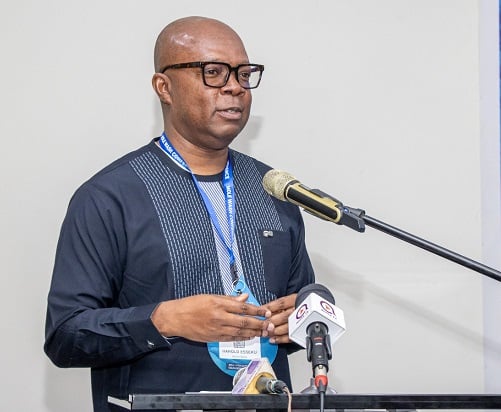Ing. Harold Esseku, a Senior Water and Sanitation Specialist at the World Bank’s Ghana office, has emphasized the urgent need for a mindset transformation within the Water Sanitation and Hygiene (WASH) sector as Ghana strives to achieve Sustainable Development Goal (SDG) 6. This transformation, he argues, should be holistic and initiated from the highest levels of leadership, altering perceptions and practices related to water, sanitation, and hygiene across the board. During the MOLEXXXV conference organized by the Ghana Coalition of NGOs in Water and Sanitation (CONIWAS) and other sponsors, he highlighted the necessity for prioritizing and adequately funding WASH initiatives. This gathering, held in Ho from October 6th to October 11th, focused on assessing Ghana’s progress, challenges, and future approaches regarding SDG 6.
The conference examined four principal themes: institutional alignments and policies, strategies for implementation, methods for enhancing service delivery, and approaches towards achieving SDG 6. Ing. Esseku pointed out that local governments must also prioritize clear budgeting and timely disbursement of funds for WASH initiatives as critical indicators of progress. He raised pivotal questions regarding Ghana’s readiness to meet SDG targets and whether current practices and attitudes could be realigned to achieve these goals. His assertion was clear: while there is potential to get back on track, a collective readiness to address these challenges is indispensable.
In a reflection on the outcomes of the MOLEXXXV WASH Conference, CONIWAS Chairperson Ms. Beata Awinpoka Akanyani noted that the conference was instrumental in reviewing Ghana’s progress towards meeting SDG 6 targets. The discussions focused on service delivery strategies that promote equity and resilience in the face of climate change. She expressed the importance of institutional realignment to deliver effective and sustainable WASH services, particularly to vulnerable and underserved communities. The conference aimed to generate actionable solutions to enhance WASH service delivery, addressing both climate and health concerns in the process.
Ms. Akanyani also highlighted the exploration of innovative financing approaches discussed at the conference. The emphasis was on inclusivity and sustainability, ensuring long-term impacts on the communities served. Recognizing the need for collaboration across different sectors, the conference sought to foster partnerships among education, health, and environmental domains to improve the effectiveness and affordability of WASH services. This cross-sectoral collaboration is vital in addressing the comprehensive needs and barriers faced by underserved populations in accessing safe and sustainable water and sanitation.
The opening ceremony of the MOLEXXXV conference was marked by the presence of prominent figures, including Togbe Tepre Hodo IV, the Paramount Chief of Anfoega, and Dr. Archibald Yao Letsa, the Volta Regional Minister. Various stakeholders, including representatives from organizations like IRC Ghana, World Vision Ghana, and the Media Coalition Against Open Defecation (M-CODe), actively participated in the discussions. This gathering of WASH experts, practitioners, and civil society representatives provided a platform for sharing knowledge and strategies, reinforcing the collaborative nature of improving the WASH landscape in Ghana.
Ultimately, the MOLEXXXV WASH conference emerged as a critical venue for dialogue and strategy formulation in Ghana’s pursuit of SDG 6. By emphasizing the need for a shift in mindset, prioritizing funding, and developing innovative partnerships, stakeholders aimed to overhaul current practices for enhanced WASH service delivery. The insights gained and actions proposed during the conference will be pivotal in working towards sustainable, equitable, and climate-responsive WASH services, ultimately contributing to the well-being of all individuals and communities in Ghana.














